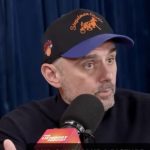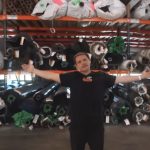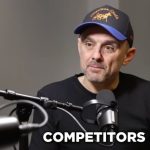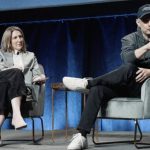In a revealing conversation on Venure Voice, entrepreneur and investor Mark Cuban shared insights into his early career aspirations and the philosophy that has shaped his approach to work and life. Cuban’s journey, which began with a goal to retire young, evolved into a pursuit of time ownership and personal freedom.
The Early Retirement Plan
Cuban’s initial career strategy was inspired by a book titled “How to Retire at Age 35,” which bears striking similarities to today’s FIRE (Financial Independence, Retire Early) movement. This approach, popular among young professionals, especially engineers, involves aggressive saving and frugal living to achieve early retirement.
“Live like a student,” Cuban emphasized, explaining his early financial strategy. His goal was to accumulate enough savings to live off the interest, taking advantage of the higher interest rates of the time. He elaborated:
“If I could save $100,000 and live off of, you know, 5… whatever it was. Right? 10,000 a 100,000, 10 percent interest rate. So $100,000 went $10,000 a year. If I could get up to $250,000 then I’d have $25,000. Could I live off of that? Yeah. Back then, I thought I could live off of it and that was my orientation, save up enough so I could retire and live like a student.”
The Shift from Retirement to Time Ownership
Despite his initial focus on early retirement, Cuban talked about how his perspective evolved. His drive wasn’t about escaping work, but rather about gaining control over his time. This shift in mindset was deeply rooted in his upbringing and his father’s influence.
Cuban reflected on his father’s work life:
“My dad really didn’t have his own time to himself. Right? Every morning, you know, he was at work or leaving for work at 7 AM, 6 days a week. You know, he got home at, you know, noon or 1 on Saturdays, and that was half a day off.”
This observation led to a crucial life lesson from his father: “The most valuable asset you can ever possibly have is time.” His father would often remind him, “Today’s the youngest you’ll ever be. Live like it.”
The Symbol of Time Freedom
For Cuban, the ultimate symbol of time ownership became the absence of a watch. He shared a pivotal moment in his career:
“The day I sold MicroSolutions, I took off my watch and said I’d never wear a watch again because that signified I have to be somewhere and pay attention to time that other people set for me, right, and to be on someone else’s schedule.”
This symbolic gesture lasted for 30 years, only ending when he acquired an Apple Watch. The act of removing his watch represented Cuban’s commitment to living life on his own terms, free from the constraints of others’ schedules.
The Ultimate Goal: Personal Freedom
Cuban’s journey from aspiring early retiree to successful entrepreneur and investor has been driven by a consistent goal: personal freedom. He summed up his life philosophy:
“I just wanna be able to do whatever I want, whenever I want, however I wanted to do it, and I got really good at it.”
This pursuit of time ownership and personal autonomy has been a defining feature of Cuban’s career and personal life. It reflects a shift from the traditional notion of retirement to a more nuanced understanding of success and fulfillment.
Key Takeaways
- Mark Cuban’s early career was inspired by the concept of early retirement, similar to today’s FIRE movement.
- His father’s influence shaped his perspective on the value of time and personal freedom.
- Cuban’s decision to stop wearing a watch symbolized his commitment to owning his time.
- His ultimate goal evolved from early retirement to achieving personal freedom and autonomy in his work and life.
Mark Cuban’s journey offers valuable insights for professionals and entrepreneurs. It highlights the importance of defining success on one’s own terms and the power of prioritizing time and personal freedom over traditional markers of achievement. As workplaces and career paths continue to evolve, Cuban’s philosophy of time ownership may resonate with a new generation of professionals seeking balance and autonomy in their lives.







